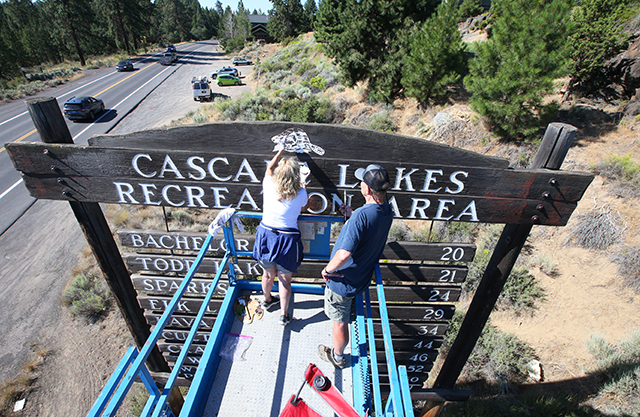Resort could avoid big fines with new rental counting method
Published 12:00 am Thursday, August 20, 2015
Eagle Crest Resort has proposed a fix that would bring the resort into compliance with Oregon regulations and Deschutes County code for the amount of overnight lodging.
The resort located west of Redmond proposes a monthly review of third-party websites, such as VRBO.com and Homeaway.com, and the resort’s own central reservation system to more accurately track individually owned rental units inside the resort and count them toward the minimum number of overnight lodging units required by the state and county.
Trending
The resort owner, Northview Hotel Group, stands to lose thousands in compliance fees if it cannot document that it provides one rental unit available 38 weeks a year for every 2½ residential units. Assessing the number of rental units by the monthly review requires a change to Deschutes County code.
“It is certainly a new approach,” said county Planning Manager Peter Gutowsky on Wednesday. “It’s a pioneering approach for documenting lodging units.”
Eagle Crest Resort has 400 easily documented overnight lodging units that include resort hotel rooms, timeshares and fractional ownership units, according to a report by Ball Janik, the legal firm representing Eagle Crest. The resort has 1,600 developed residential lots, leaving it at least 240 units shy of its required minimum overnight units. Ball Janik wrote the proposed amendments to county code with input from county staff.
The resort until now has tried to comply by surveying the individual owners of vacation rentals each year, a method the county did not find acceptable. For example, Eagle Crest in 2015 reported a 31 percent response rate by property owners to the survey.
Under the existing code, the county could fine Eagle Crest up to $2,000 a day and impose a moratorium on new building permits for failing to meet the minimum number of rentals. Under the proposed change, the county could fine the resort the amount lost in transient lodging taxes multiplied by the number of rooms and days it falls short. Also, Eagle Crest could not simply continue to pay the fine in lieu of building more overnight lodging if it builds more permanent homes, according to Ball Janik’s report.
The code amendments proposed by the firm would apply only to Eagle Crest, where the first phase of development dates to the 1980s. The county requires that other destination resorts restrict some lots to overnight lodging in their deeds to ensure the resorts meet the required ratio.
Trending
Eagle Crest’s creation predates the county code on destination resorts, so its lots are not restricted by deed, according to a review of the Eagle Crest plan written by Scott Edelman of the Oregon Department of Land Conservation and Development. He wrote, in an email to Gutowsky and Nick Lelack, director of the Deschutes County Community Development Department, that Eagle Crest’s proposed solution may be a better method of counting overnight units.
“The county believes this system would allow them to better track and assess taxes on overnight rentals,” Edelman wrote July 14. “With the other resorts, they do not check to make sure those units with deed restrictions are actually following the deed restriction.”
Gutowsky scheduled a Sept. 24 public hearing before the Deschutes County Planning Commission to consider the proposed fix. If the planning commission recommends the change, it goes to Deschutes County commissioners for consideration.
— Reporter: 541-617-7815, jditzler@bendbulletin.com







